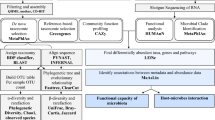Abstract
For millennia, food has been at the center of social events, in times of joy and in times of sorrow. Protein-energy malnutrition is associated with a significant impairment of cell-mediated immunity, phagocyte function, complement system, secretory immunoglobulin A antibody concentrations, and cytokine production. Deficiency of single nutrients also results in altered immune response: this is observed even when the deficiency state is relatively mild. Of the micronutrients, zinc, selenium, iron, copper, vitamins A, C, E and B6, and folic acid have important influences on immune responses. Overnutrition and obesity also reduce immunity. Low-birth-weight infants have a prolonged impairment of cell-mediated immunity that can be partly restored by providing extra amounts of dietary zinc. In the elderly, impaired immunity can be enhanced by modest amounts of a combination of micronutrients. These findings have considerable practical and public health significance.
Similar content being viewed by others
Author information
Authors and Affiliations
Corresponding author
Rights and permissions
About this article
Cite this article
Chandra, R. Nutrition and the immune system from birth to old age. Eur J Clin Nutr 56 (Suppl 3), S73–S76 (2002). https://doi.org/10.1038/sj.ejcn.1601492
Published:
Issue Date:
DOI: https://doi.org/10.1038/sj.ejcn.1601492
- Springer Nature Limited
Keywords
This article is cited by
-
Nutritional Aspects of People Living with HIV (PLHIV) Amidst COVID-19 Pandemic: an Insight
Current Pharmacology Reports (2022)
-
Vitamins and supplements - why choice and context are key
BDJ Team (2021)
-
Relation of Dietary Factors with Infection and Mortality Rates of COVID-19 across the World
The journal of nutrition, health & aging (2020)
-
Effects of restrictions on maternal feed intake on the immune indexes of umbilical cord blood and liver Toll-like receptor signaling pathways in fetal goats during pregnancy
Journal of Animal Science and Biotechnology (2019)
-
The association between low frequency of having breakfast and dyslipidemia in South Korean men and women
European Journal of Clinical Nutrition (2019)



